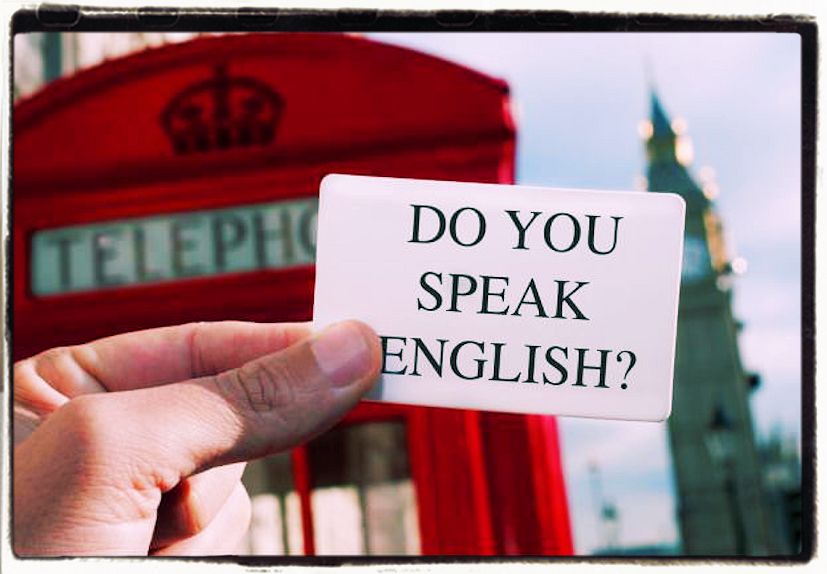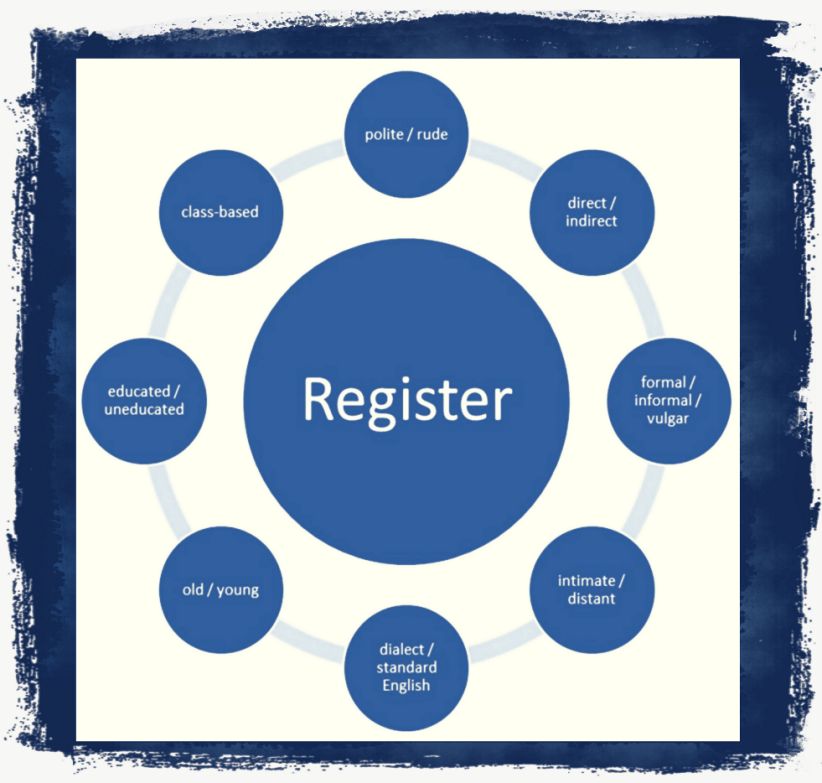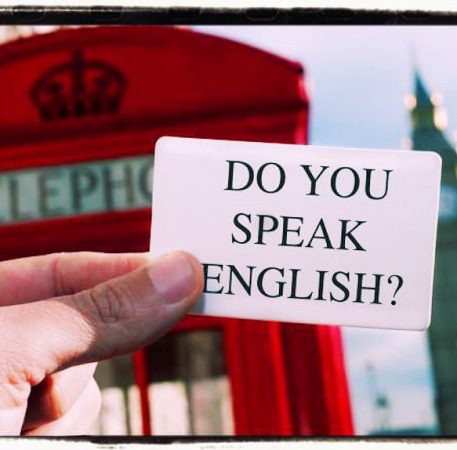
English language registers. The English language has a veritable power of expression such as, perhaps, never stood at the command of any other language of men. Its highly spiritual genius and wonderfully happy development and condition have been the result of a surprisingly intimate union of the two noblest languages in modern Europe, the Teutonic and the Romanic. It is well known in what relation these two stand to one another in the English tongue; the former supplying, in far larger proportion, the material groundwork; the latter, the spiritual conceptions.
In truth, the English language, which by no mere accident has produced and upborne the greatest and most predominant poet of modern times, as distinguished from the ancient classical poetry (I can, of course, only mean Shakspeare), may, with all right, be called a world-language, and, like the English people, appears destined hereafter to prevail, with a sway more extensive even than its present, over all the portions of the globe. For in wealth, good sense, and closeness of structure no other of the languages at this day spoken deserves to be compared with it, – not even our German, which is torn, even as we are torn, and must first rid itself of many defects before it can enter boldly into the lists as a competitor with the English.
Jacob Grimm
English contains many variations of accent and even dialect, but unlike Italian or German, the dialects are rarely different enough to make comprehension impossible. True, a London Cockney would have a very difficult time in a conversation with a steel worker in Glasgow, and a Carolina cotton picker might find it difficult to understand and be understood by a sheep farmer from Australia, but a businessman from, say, Indianapolis, Indiana, U.S.A. would have few problems dealing with4 a businessman from Dublin, Ireland or Sydney, Australia, Auckland, New Zealand, Liverpool in England, Johannesburg, South Africa or Kingston, Jamaica. A reasonably educated standard English allows comprehension and communication all over the English speaking world.

But the geographical spread of the English speaking world cannot entirely account for English being the “lingua franca” of the modern world. The industrial and technological achievements, mainly of Britain and the United States, has made English the international language of many different fields, like: International air traffic control; Sea navigation (morse code between ships); The complex jargon of computers and space technology; International scientific, business and financial world conferences; Advertising and marketing is another field which is largely dominated by the English language.
What’s more through the Afro-American, English became the language of jazz. English continues as the language of pop music throughout the world not only from British and American pop stars but as the chosen language of the Swedish group Abba and the Spanish group Baccara, and no doubt many others in other countries. The British enthusiasm for competitive sport has given the world soccer football, rugby football, golf, tennis, cricket, squash, boxing, competitive swimming, rowing, modern horse racing and even ping gong. To this list, the Americans have added volley ball, basketball and baseball. It is hardly surprising that English is the international language of sport, and words like “corner”, “penalty”, “goal”, “K. O.” and smash” are familiar in every language.
Language Registers
Language register in English is the scale of formality we use when we write and speak. There are five basic levels describing different types of register or formality definition in writing and speaking. They are, high formal, formal, neutral, informal and vulgar. These are also sometimes called address registers. They work to increase the variety of a language in writing and speaking and define formal and informal language.
So there are at least six language registers or styles. Each level has an appropriate use that is determined by differing situations. It would certainly be inappropriate to use language and vocabulary reserve for a boyfriend or girlfriend when speaking in the classroom. Thus the appropriate language register depends upon the audience (who), the topic (what), purpose (why) and location (where).
You must control the use of language registers in order to enjoy success in every aspect and situation you encounter.

1. Static Register
This style of communications RARELY or NEVER changes. It is “frozen” in time and content. e.g. the Pledge of Allegiance, the Lord’s Prayer, the Preamble to the US Constitution, the Alma Mater, a bibliographic reference, laws .
2. High formal
It is the level of language that you would use on formal occasions to address the Queen, an archbishop, president or prime minister.
3. Formal Register
This language is used in formal settings and is one-way in nature. This use of language usually follows a commonly accepted format. It is usually impersonal and formal. A common format for this register are speeches. e.g. sermons, rhetorical statements and questions, speeches, pronouncements made by judges, announcements.
4. Consultative Register
This is a standard form of communications. Users engage in a mutually accepted structure of communications. It is formal and societal expectations accompany the users of this speech. It is professional discourse. e.g. when strangers meet, communications between a superior and a subordinate, doctor & patient, lawyer & client, lawyer & judge, teacher & student, counselor & client,
5. Casual or Informal Register
This is informal language used by peers and friends. Slang, vulgarities and colloquialisms are normal. This is “group” language. One must be member to engage in this register. e.g. buddies, teammates, chats and emails, and blogs, and letters to friends.
6. Intimate Register
This communications is private. It is reserved for close family members or intimate people. e.g. husband & wife, boyfriend & girlfriend, siblings, parent & children.
7. Vulgar
It is not the language of a smutty joke. It is an intimate register that contains the type of language we use when we talk to immediate family members, very close friends, a child or a family pet.
Rule of Language Use:
One can usually transition from one language register to an adjacent one without encountering repercussions. However, skipping one or more levels is usually considered inappropriate and even offensive.
You can also read the following articles:

